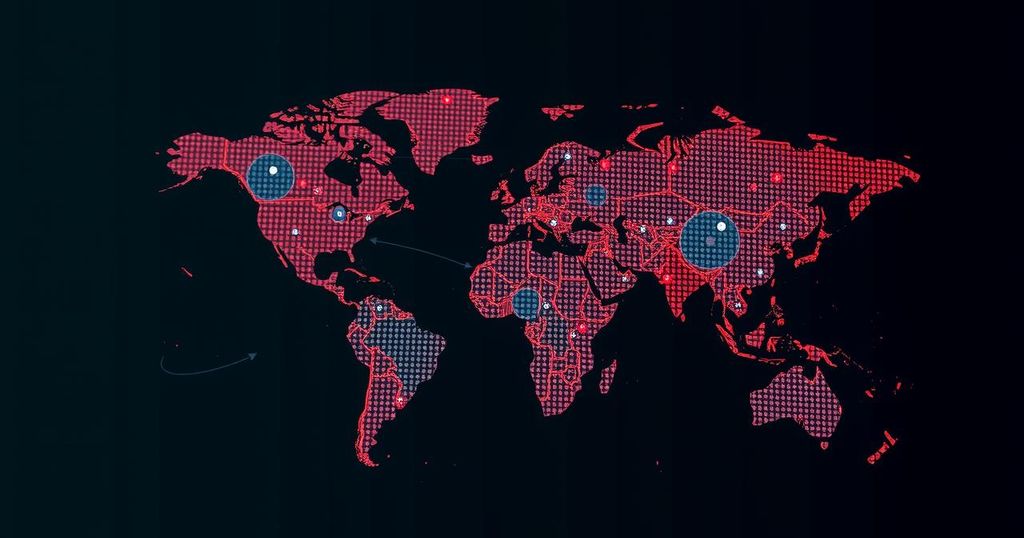Swiss Re Warns Businesses About The Economic Threats of Extreme Weather
Swiss Re has warned businesses of the rising economic costs associated with extreme weather due to climate change, particularly highlighting the vulnerabilities of the United States and the Philippines. As severe weather events increase in frequency and intensity, it is essential for companies to adapt. They should implement preventative measures and pollution-reducing practices to mitigate risks and protect their economic interests.
Swiss Re, one of the world’s foremost insurance companies, has issued a critical warning regarding the financial implications of extreme weather for businesses. In a recent press release, the organization highlighted that economic losses linked to climate change are anticipated to escalate, with the United States and the Philippines identified as particularly vulnerable nations. Analysis of 36 countries revealed that these two regions are the most exposed to the economic hazards posed by increasing extreme weather events.
While hazards such as floods, tropical cyclones, winter storms, and severe thunderstorms are not new phenomena, their frequency and intensity are expected to rise due to escalating global temperatures. Swiss Re’s research indicates that the annual economic losses experienced by the United States from extreme weather currently represent about 0.38% of its gross domestic product, totaling approximately $97 billion. The significance of these findings was emphasized by Jérôme Jean Haegeli, the group chief economist at Swiss Re, who stated that “Climate change is leading to more severe weather events, resulting in increasing impact on economies.”
The concerning trend of extreme weather continues unabated, as evidenced by the extreme conditions the United States faced in 2024, including catastrophic hurricanes and destructive wildfires. Economic forecasts estimate the total impact of Hurricanes Helene and Milton could approach $400 billion. Furthermore, losses from wildfires have been significant, with figures reaching $89.6 billion in a 2023 analysis by IMPLAN. As the NOAA has documented, the past decade has seen the hottest years recorded, with 2024 poised to set new temperature records.
This trajectory suggests no respite from a warming climate, compelling businesses to recognize the potential harms of climate inaction to their economic stability. To mitigate the increasing financial risks associated with extreme weather, businesses are progressively facing challenges in securing adequate insurance coverage, as insurers either elevate prices or withdraw offerings. As such, preventative measures are becoming crucial.
Business owners can adopt various strategies to enhance resilience against weather-related damages. This includes implementing flood protection systems and transitioning to environmentally friendly practices, such as utilizing electric vehicles and promoting sustainable energy usage within company premises. These proactive steps not only address potential economic risks but also foster a positive reputation among environmentally conscious customers.
Addressing these challenges requires both adaptation and mitigation efforts by businesses, ensuring they take meaningful action towards reducing their environmental impact while simultaneously safeguarding their economic interests.
The warning issued by Swiss Re highlights the increasing economic threats posed by climate change and extreme weather conditions worldwide. As global temperatures continue to rise, the frequency and intensity of severe weather events, such as floods and hurricanes, are expected to grow, leading to substantial economic losses in vulnerable regions. The analysis presents evidence that specific nations, particularly the United States and the Philippines, are at heightened risk, underscoring the urgency for businesses to adapt to these climate-related challenges. Additionally, factors like rising sea levels and changing weather patterns further exacerbate the situation, particularly in densely populated coastal areas. The insurance industry’s response to these risks also plays a critical role in determining how businesses can prepare for and protect themselves from such events. Hence, understanding the potential financial implications is vital for businesses navigating a landscape increasingly influenced by climate change.
In conclusion, the warnings issued by Swiss Re serve as a stark reminder of the looming economic risks posed by climate change and extreme weather events. Both the United States and the Philippines are identified as regions that are particularly vulnerable to these threats. The increasing severity of disasters calls for urgent adaptation measures from businesses to ensure their resilience and protect against potential financial losses. Implementing environmentally sustainable practices not only helps to mitigate these risks but also promotes a positive business reputation, ultimately benefiting the broader economy.
Original Source: www.thecooldown.com




Post Comment